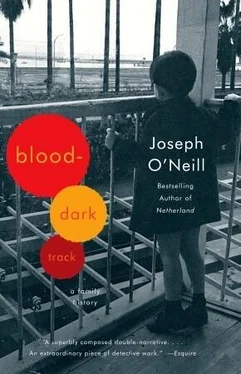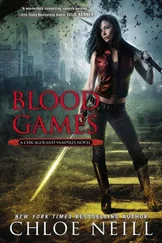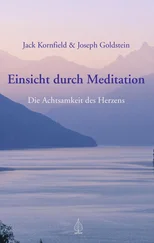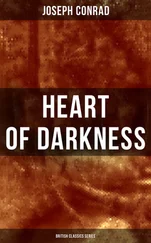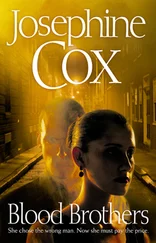1 ...8 9 10 12 13 14 ...85 There was a final thing I knew about Joseph. He was, in my grandmother’s phrase, a coureur . To be exact, she exclaimed: ‘Was he interested in women? Et comment! C’était un grand coureur! ’ This pronouncement came a couple of years before her death, as she sat in her favourite armchair. Her voice had contained a clear note of amusement or pride and this, together with the use of coureur , threw me slightly. Literally, the word means ‘runner’, and its innocent athletic connotation planted the notion in my head that my grandfather’s interest in women was a harmless pastime, somehow morally akin to pounding the track. The other expression I’d heard used about him, ladies man , also rang innocently in my ears, conjuring up an old-fashioned gallantry consistent with something Tante Amy later told me: ‘Papa was very knowledgeable about law and property and was of great assistance to widows who required his help. Every night there would be a lady in his office, seeking his advice about some matter or other.’ He enjoyed dropping in on women friends for tea, taking them for strolls and presenting them with gifts. He would promenade with Giselle Chalfoun’s mother and aunt, mischievously suggesting to each that her cooking was better than the other’s. He gave large gold rings to René Messageot’s sister and wife, and doted on René’s mother; when Madame Messageot died, Joseph was inconsolable. He was very good friends with his friend Riri Levante’s wife, the attractive and socially powerful Rosie, and very often visited them with my grandmother. All this suggested that perhaps he was not a man’s man, that he found an unusual measure of social gratification in female company. Then I discovered that coureur was short for coureur de jupons , skirt-chaser, and when further inquiries revealed that Joseph was sometimes nicknamed Rasputin, my impression of him as an attentive gallant came under strain. My sister Elizabeth repeated a story which Mamie Dakad, again in a curiously triumphant tone, once told her: before the war, Joseph had a Muslim mistress staying at the hotel whom he was anxious to be shot of, so he asked Georgette to move into the hotel for a few days to make the woman’s position impossible. ‘ “Never!” I told him. “You got yourself into this position, now get yourself out of it!” ’ ‘He loved me,’ my grandmother once said, ‘but he paid attention to other women.’
As often happens with the heartbreakers of yesteryear, my grandfather’s dreamboat charms are not revealed by the photographs of him, which show a bespectacled fellow with smallish eyes and a dark concentration of hair beneath the nose. However, his famous spruceness does come through, not least in a picture that turned up in early 1995 in my grandmother’s papers. The photo was copied and sent to various family members, almost as if it were an official portrait. Its seductive, iconic value was obvious. Joseph, thirty-something, sat atop a horse. (The animal’s name was Tayara , Arabic for flier. It lived in a makeshift stable in the hotel, where a full-time groom fed it and polished it up every day like a shoe. Occasionally, Tayara ran unsuccessfully at the Adana hippodrome.) He sported a smart wide-brimmed hat and round glasses, a sleeveless sweater, a white shirt with the sleeves rolled up into neat scrolls above the elbows, breeches, and superb riding boots. He carried a whip and he wore white gloves. It was hard for me, a non-equestrian, to say whether a certain horsemanship was captured by the photograph, but to my inexpert eyes he looked the part. The horse was prancing, and its heraldic posture lent the rider — straight-backed, impassive, assured — a chivalric air. Le chevalier Dakad: this was what the ensemble was calculated to impress upon the world.
What particularly interested me about this image was that Joseph lived in a dusty Turkish port populated by the families of shipping agents, cotton traders, commercial landlords, shopkeepers, stallholders, tradesmen, importers, exporters. These people were not cavaliers, and to the best of my knowledge there hadn’t been a local class of chevaliers to which Joseph might have belonged since Crusader times.
Of course, displays of class are, to an important degree, self-fulfilling and artificial, but it seemed that the aspirant and romantic elements in Joseph’s brand of stylishness did not pass unnoticed. Into his thirties, he would be teased by girls chanting the rhyme
O Dakak-e
Tu nous fais tourner
La tête .
(Oh Dakak, you turn our heads.) The chant illustrated something else: contrary to the local custom of calling people by their first name (Monsieur Jean, Monsieur Theodore, etc.), for some reason Joseph’s peers generally referred to him by his surname, Dakak .
But if Mersin was a one-horse town, and my grandfather owned that horse, it was to be noted that when Mersin was a one-fridge town, Joseph owned that fridge — a tall Frigidaire, expensive as a motorcar, bought in around 1950. He also owned the first car with automatic transmission in Mersin, a blue Pontiac bought in around 1956, and in the new hotel he installed Mersin’s first central heating system and first elevator. When Mersin was a one-pedigree-dog town, Joseph owned the dog: Tarzan, a Great Dane acquired in Lyon in 1947, whose gargantuan appearance would send the people of Mersin diving for cover. (In those days there was so little traffic that Tarzan was allowed out on solo tours. His master rarely took him out for walks.) Back in 1939, Joseph employed a European architect to build the town’s first decent cinema, the Günes Cinema, which was equipped with plush seats and loges. And, of course, Joseph at all times owned and ran the premier hotel in Mersin.
It was clear that these material firsts — many of which, in a backwater like Mersin, could only be achieved with a great deal of effort and expense — were more than social affectations. My grandfather’s imagination was grabbed by technological progress. New things, modern things, brought into view cultural horizons which profoundly excited him. That said — and here was a rare trait in Mersin — he also was interested in ancient forms of civilization. He had an antiquary’s curiosity about relics and would ask local villagers whether they had come across any objects of interest. He wrote to Ankara to protest at the local habit of incorporating ancient blocks of limestone into the villagers’ houses. He was proud of his friendship with Professor John Garstang, the English archaeologist, and also made friends, in the ’forties, with another English archaeologist, Michael Gough, whose wife Mary subsequently wrote of ‘the good M. Dakad’. When the English travel-writer Freya Stark checked in at the Toros Hotel in April 1954, she wrote, ‘Such a kind welcome because all here are friends of John Garstang’s. They gave me one look and asked me what period I was studying — and are full of interest in Alexander the Great.’ In Alexander’s Path (1958), she described Joseph Dakad as ‘overflow[ing] with kindness and a passion for cleanliness unique in my experience of Turkish inns’.
Joseph Dakad enjoyed reading history books and subscribed to the French journal Historia . He liked non-fiction. Novels did not interest him; neither, despite his interest in the Günes Cinema, did movies. Aided by his voracious newspaper reading habits, he was knowledgeable about a wide range of matters. When Julian Huxley came to the hotel, Joseph knew who he was. He took an interest in domestic and international affairs, which he viewed from a perspective that was ‘not left-wing, that’s for sure,’ according to Oncle Pierre. My father was surprised to learn that his father-in-law knew all about Terence MacSwiney, the Lord Mayor of Cork who died on hunger strike in 1920, and Roger Casement, the Irish patriot hanged by the British in August 1916 for treasonably acting as Germany’s ‘willing agent’; Joseph even knew the name of the gun-filled trawler, the Aud , with which Casement’s U-boat had a rendezvous off the coast of Ireland.
Читать дальше
Конец ознакомительного отрывка
Купить книгу
